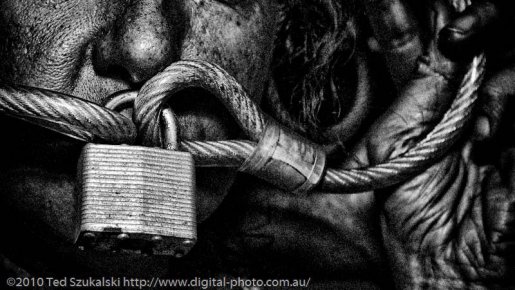Saudi Arabia & Freedom of Speech - Social Media Censorship


The universal declaration of human rights was written in 1948; yet after more than sixty years there are countries where basic rights are denied. Freedom of speech is one of the most important evaluation criteria of a democracy: the more freedom of speech is allowed, the more a democracy is valid.
Saudi Arabia's regime, which profusely distances itself from the idea of democracy, is very keen on censoring: in 2005 it blocked Blogger, Google’s popular weblog tool; in 2010 it banned the use of Blackberry and temporarily blocked Facebook. Social networks are the latest target; the Saudi Arabian authorities have recently warned of blocking Twitter (defined a forum for unjust, incorrect communication) Skype, and applications such as WhatsApp and Viber.
As pointed out in a survey by the Opennet website, the attempt of censoring disturbing contents such as pornography seems to be an excuse to censor whatever the Saudi Arabia regime does not fancy:
“Political parties are banned and activists who publicly call for reform risk being jailed. Journalism is strictly controlled, and journalists must exercise self-censorship in order to avoid government scrutiny and dismissal. […]Saudi Arabia publically acknowledges censoring morally inappropriate and religiously sensitive material, but the authorities also filter oppositional political sites and sites focused on human rights issues.”
Freedom of Speech Versus Censorship
In my opinion (which is validated by a long list of historical examples) censorship comes into place when information represents a threat. Keeping the population ignorant is the greatest self-defence tool for a dictatorship and the Saudi Arabian regime is a great expert at censoring content in order to prevent the spread of knowledge.
Social media represents a big threat as it has definitely revolutionised the way people communicate: the circulation of information is quick and the internet platform abounds with content. The net is a wide world, difficult ( yet not impossible) to control and censor; the more technology as well as social networks we develop, the more youths will find new ways to escape censorship.
The Saudi regime is well aware of the power of social networks (especially after the Arab Spring Revolution) and is therefore acting in order to limit their reach. It is unthinkable that regimes control what people say; the censorship of social networks and applications that permit to converse across the world are the umpteenth stab to freedom and human dignity.
If we are deprived of our words, we are deprived of our thoughts: the essence of our lives. Thus, people must rebel, voice their dissent, fight for their rights. If they only silently accept and move on, very little will be done toward their rightful recognition.
Dissent is the key in a place where homologation is the rule and awareness is the greatest power human beings have. Let’s use it.
Ludovica Iaccino is an Italian who graduated in international journalism and is currently living in London. Read more posts by her here.
Share your comments on this issue below.








